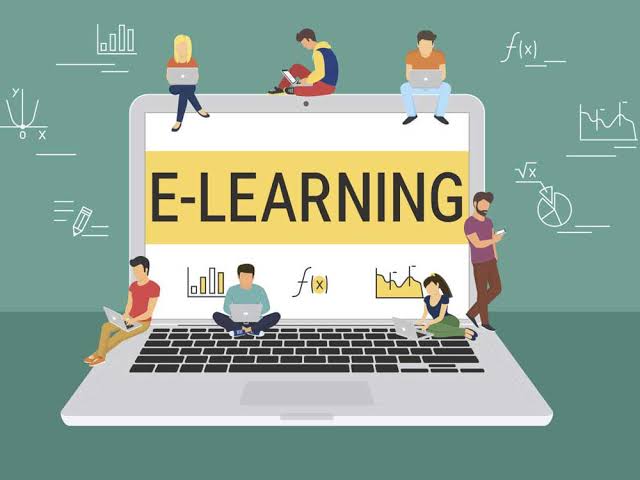
Online Learning Platforms and the Democratization of Education
Online learning platforms are revolutionizing education by removing traditional barriers and bringing knowledge to everyone’s fingertips. They enable global access to quality learning, foster personalized experiences, and support continuous skill development. With flexible formats and affordable courses, these platforms empower students, professionals, and lifelong learners.
✨ Raghav Jain

Introduction
Once, education was bound by geography, money, and access. Only those in the right place, with enough resources, could tap into quality learning. But today, a quiet revolution is unfolding—the democratization of education. Thanks to online learning platforms, knowledge is no longer a privilege—it’s a right available to anyone with an internet connection.
Platforms like Coursera, Khan Academy, BYJU'S, edX, and Udemy are removing age, financial, and location barriers—allowing a rural student in India or a mother in Kenya to access Ivy League content from their homes.
In this article, we’ll explore how online learning platforms are reshaping education, the benefits and challenges they bring, how they empower learners globally, and practical tips to make the most of them in your daily life. Online learning platforms have been a major force in the democratization of education, making high-quality learning resources accessible to a much broader global audience. world This shift dismantles traditional barriers of geography, socioeconomic status, and inflexible schedules, allowing people from all walks of life to pursue knowledge and skills. It fundamentally redefines who can learn what and from whom.
Breaking Down Barriers
Online platforms address some of the most significant obstacles to education:
Geographic Barriers: For students in remote or rural areas, access to quality educational institutions or expert teachers is often limited. Online platforms, however, deliver content directly to them, so as long as they have an internet connection, they can learn from anywhere. This eliminates the need for costly relocation and commuting.
Financial Constraints: Traditional education can be prohibitively expensive due to tuition, accommodation, books, and transportation. Many online platforms offer free or low-cost courses (MOOCs - Massive Open Online Courses) and certifications, making education more affordable. This financial accessibility allows individuals from low-income backgrounds to gain valuable skills and credentials that can lead to better job opportunities.
Flexibility and Time: For working professionals, parents, or individuals with other responsibilities, a rigid, in-person class schedule is often impossible. Online learning provides the flexibility to study at one's own pace and on one's own schedule. Asynchronous learning, with pre-recorded lectures and downloadable materials, allows students to fit their education around their lives, not the other way around.
Key Features and Benefits
The power of online platforms lies in their ability to provide a richer, more tailored learning experience.
Global Access to Expertise: Students can access courses from prestigious universities and industry-leading experts worldwide without having to be on campus. This means a student in India can take a course from a professor at a top U.S. university, or a professional in Africa can earn a certification from a leading tech company like Google or IBM.
Personalized Learning: Many modern platforms use AI and adaptive learning to customize the educational experience. These systems can identify a student's strengths and weaknesses, adjusting the pace and content of the course to help them master topics more effectively. This personalized approach helps reduce learning gaps and keeps students engaged.
Diverse Course Offerings: Online platforms provide a vast array of subjects and skills, from academic degrees to professional certifications and even hobby-based courses. This wide selection caters to a broader range of interests and career goals, allowing learners to acquire specific, in-demand skills quickly.
Challenges and The Road Ahead
Despite their immense potential, online learning platforms face significant challenges, especially in developing countries.
The Digital Divide: The biggest hurdle is the lack of digital infrastructure. Many communities lack reliable, high-speed internet access and consistent electricity. Without these basic necessities, the promise of online learning remains unfulfilled for a large portion of the world's population.
Affordability of Devices: Even with internet access, many students cannot afford the necessary devices like laptops or tablets. Relying solely on mobile phones can limit a student's ability to engage with certain course materials and software.
Lack of Support and Motivation: Online learning requires strong self-discipline and time management skills. Without the social interaction of a physical classroom and the immediate guidance of a teacher, students can feel isolated and struggle to stay motivated, leading to high dropout rates.
Quality and Accreditation: Ensuring the quality and global recognition of online credentials is another key challenge. While many reputable institutions offer online degrees, a lack of standardized accreditation for all online courses can create uncertainty for learners and employers.
The future of online learning is focused on bridging these divides. Advancements in mobile learning, AI-powered assistive technologies (like real-time translation and captions), and government initiatives to expand digital infrastructure are all working to make education more inclusive and accessible.
What is the Democratization of Education?
Democratization of education means making quality learning accessible and inclusive for all—regardless of income, geography, age, gender, or social background.
Traditionally, education was limited by:
- High tuition fees
- Limited seats in universities
- Language barriers
- Location-based access
- Socio-economic bias
But now, technology is shifting power from institutions to individuals—letting anyone learn, anytime, anywhere.
Online platforms are leading this movement by:
- Offering free or affordable courses
- Removing physical boundaries
- Supporting self-paced learning
- Reaching underserved communities
- Enabling upskilling and lifelong learning
Popular Online Learning Platforms Transforming Education
1. Coursera
Partners with top universities (Stanford, Yale, IITs) to offer certificates, diplomas, and degrees.
2. edX
Founded by MIT & Harvard. Offers micro-credentials, professional programs, and full degrees.
3. Khan Academy
A free nonprofit platform. Focuses on school-level subjects with interactive videos.
4. Udemy
Offers affordable, skill-based courses in everything from coding to painting.
5. Skillshare
Creative-focused learning—art, animation, marketing, photography.
6. BYJU’S / Unacademy / Vedantu
India-focused platforms offering test prep, school curriculum, and conceptual learning in native languages.
Benefits of Online Learning Platforms
1. Accessibility for All
Whether you're in a city or a village, you can access the same education as someone studying abroad. All you need is a phone and internet.
2. Affordability
Many platforms offer free or low-cost options. Scholarships and financial aid are often available.
3. Flexibility
Study at your pace, on your schedule—perfect for working professionals, parents, or part-time learners.
4. Diverse Course Offerings
From computer science to cooking, mental health to entrepreneurship—learn whatever you want.
5. Interactive & Engaging Content
Animations, quizzes, discussion forums, peer reviews, and practical projects make learning fun and interactive.
6. Skill-Based Learning
Focuses on real-world application—helping you gain job-ready skills, not just theoretical knowledge.
How Online Learning Empowers Different Learners
✅ Students from Rural Areas
- No need to migrate for good education
- Learn in regional languages
- Compete in global exams with the same content
✅ Working Professionals
- Learn while working
- Upskill to shift careers
- Learn trending technologies (AI, Data Science)
✅ Homemakers or Parents
- Study while managing home
- Start side hustles or businesses
- Teach children better
✅ Disabled or Chronically Ill Learners
- Learn from home without physical limitations
- Access assistive tools (text-to-speech, subtitles)
✅ Senior Citizens
- Lifelong learning
- Digital literacy and hobby courses
- Stay mentally active and socially engaged
Challenges in Online Learning and How to Overcome Them
1. Digital Divide
Not everyone has internet or devices.
✅ Solution: Government + NGO efforts to provide tablets & public Wi-Fi.
2. Lack of Motivation or Discipline
Self-paced learning needs personal drive.
✅ Solution: Set daily learning goals. Use calendars and alarms.
3. Low Interaction
Online learning can feel isolating.
✅ Solution: Join forums, study groups, and live sessions.
4. Course Overload
Too many options can confuse learners.
✅ Solution: Pick 1–2 trusted platforms. Read reviews and start small.
Daily Routine to Maximize Online Learning
Morning Routine
- Set a goal: “1 video + 1 quiz”
- Watch a 15-min lesson while sipping tea
- Write key points in a digital notebook
Midday Boost
- Practice hands-on: code, draw, solve
- Use platform discussion forums to clear doubts
Evening Wrap-Up
- Reflect: What did I learn today?
- Revise notes or teach someone else (boosts memory!)
- Plan next day's topic
Weekly Learning Goals
✅ Complete 2–3 modules
✅ Attempt 1 graded quiz
✅ Post once in a discussion forum
✅ Download and revise your notes
✅ Watch an inspiring TED Talk or educator podcast
✅ Reflect in a journal: “What inspired me this week?”
Impact of Online Learning on Society
🧠 Bridging Urban-Rural Gaps
Students from smaller towns now top competitive exams using digital content.
👩💻 Empowering Women
Many women restart careers by upskilling online or launching home businesses.
🌍 Global Access to Local Talent
A small-town student can take Harvard's CS50 or Google’s Data Analytics certificate.
📈 Reskilling the Workforce
Employees learn AI, cybersecurity, design thinking, and more—keeping up with global demand.
Myths About Online Learning: Busted!
“Online courses are not real education.”
→ Wrong! Many are certified by top universities and recognized globally.
“Only techies can benefit.”
→ False! Artists, writers, teachers, parents, everyone can benefit.
“Free courses are low quality.”
→ Not true. Khan Academy, NPTEL, and others offer world-class free content.
“You won’t get a job with online learning.”
→ Many companies now value skills over degrees—and platforms offer job-ready training.
“You need English fluency to learn.”
→ Many platforms offer courses in Hindi, Tamil, Telugu, and other languages.
Daily Time: 30–60 mins
Tools: Mobile/PC, notebook, internet
Outcome: Learn a valuable skill, build a mini portfolio, and open side income options.
Conclusion
Online learning platforms are not just about digital education—they’re about educational freedom. They allow you to break boundaries, build skills, and own your learning journey—whether you're in a metro city or a remote village.
The future of education is not just in classrooms—it's in every device, home, and heart that wants to learn.
So whether you’re a student, professional, artist, or homemaker—it’s time to explore, enroll, and empower yourself. Because in this era of democratized education, knowledge truly belongs to everyone.
Start your course. Take that quiz. Learn something new today.
Because your future is just one click away.
Q&A Section
Q1:- What is meant by the democratization of education through online learning platforms?
Ans :- It refers to making quality education accessible to everyone, regardless of location, income, or background, by leveraging digital tools and internet-based learning platforms.
Q2:- How do online platforms reduce barriers to education?
Ans :- They eliminate geographic constraints, reduce costs, provide flexible scheduling, and offer diverse course selections to learners across the globe.
Q3:- What are some popular online learning platforms facilitating this change?
Ans :- Platforms like Coursera, edX, Udemy, Khan Academy, and SWAYAM offer free or affordable courses from top universities and experts in various fields.
Q4:- How do online courses support personalized learning experiences?
Ans :- Learners can study at their own pace, choose topics of interest, and revisit content anytime, ensuring deeper understanding and retention.
Q5:- What role did the COVID-19 pandemic play in accelerating online education?
Ans :- The pandemic forced schools and colleges to adopt online models rapidly, highlighting the value and scalability of digital learning worldwide.
Q6:- How do online platforms promote inclusivity in education?
Ans :- They cater to marginalized groups, people with disabilities, and working individuals by offering multilingual content, assistive technologies, and flexible access.
Q7:- Are online degrees and certifications becoming widely accepted?
Ans :- Yes, many employers now recognize accredited online credentials, especially from reputable institutions, as valid indicators of skills and knowledge.
Q8:- What are some challenges faced by online education systems?
Ans :- Key challenges include digital divide, lack of internet access, reduced face-to-face interaction, and concerns over content quality and engagement.
Q9:- How do online learning communities enhance the educational experience?
Ans :- Forums, peer discussions, and interactive assignments build collaboration, motivate learners, and replicate some aspects of in-person learning.
Q10:- What is the future outlook for online education and its global impact?
Ans :- Online education is expected to expand further, integrating AI and AR/VR, making learning more immersive, inclusive, and accessible for all.
Similar Articles
Find more relatable content in similar Articles

Data Centers and the Planet: M..
As cloud computing becomes the.. Read More

Digital DNA: The Ethics of Gen..
Digital DNA—the digitization a.. Read More

Protecting Kids in the Digital..
In an increasingly connected w.. Read More

Wearable Health Sensors: The D..
Wearable health sensors are re.. Read More
Explore Other Categories
Explore many different categories of articles ranging from Gadgets to Security
Smart Devices, Gear & Innovations
Discover in-depth reviews, hands-on experiences, and expert insights on the newest gadgets—from smartphones to smartwatches, headphones, wearables, and everything in between. Stay ahead with the latest in tech gear
Apps That Power Your World
Explore essential mobile and desktop applications across all platforms. From productivity boosters to creative tools, we cover updates, recommendations, and how-tos to make your digital life easier and more efficient.
Tomorrow's Technology, Today's Insights
Dive into the world of emerging technologies, AI breakthroughs, space tech, robotics, and innovations shaping the future. Stay informed on what's next in the evolution of science and technology.
Protecting You in a Digital Age
Learn how to secure your data, protect your privacy, and understand the latest in online threats. We break down complex cybersecurity topics into practical advice for everyday users and professionals alike.
© 2025 Copyrights by rTechnology. All Rights Reserved.